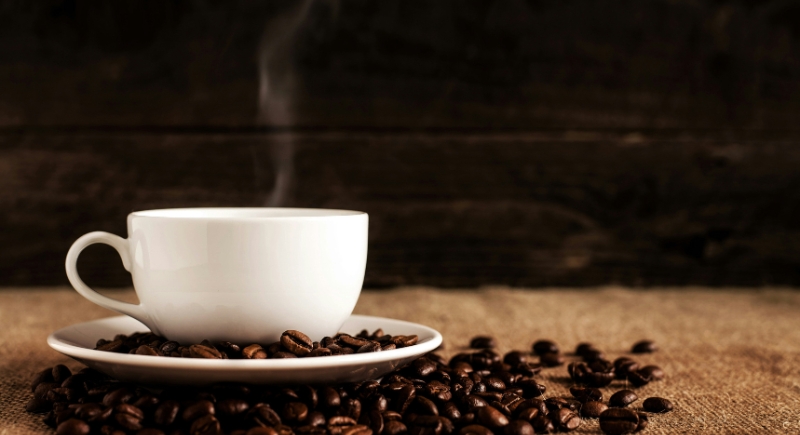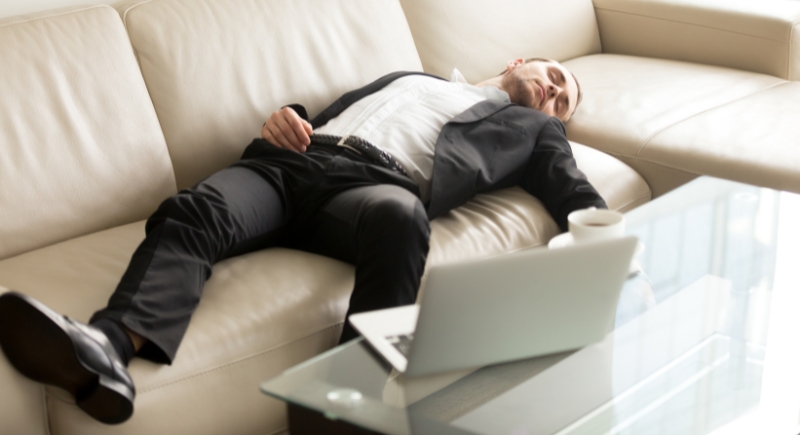The Trick to Surviving the Day After Zero Sleep
Running on no sleep isn’t ideal, but it happens. What matters next is how you move through the day without unraveling like the hem of your socks. There’s no cheat code, but there is a way to keep your head above water without losing track of your own name.
Let’s find out how.
Don’t Fight the Fog—Outsmart It
Sleep deprivation messes with the brain in a few key ways. The prefrontal cortex, which handles decisions and memory, gets sluggish. The emotional center goes into overdrive. Even your immune system steps back. The body treats sleep loss like an emergency, which means your responses to minor stressors get louder. A jammed printer could feel like an existential crisis before lunch.
However, one study published in Human Relations followed over 200 workers and found something worth holding onto: those who believed their willpower was unlimited actually performed better on sleep-deprived days. Their mood held up longer, their focus stayed sharper, and they were less likely to mentally drift into the abyss. They told themselves they could push through, and they did.
Essentially, your mindset, especially after a bad night, makes a noticeable difference. If you go into the day convinced it’s ruined, that becomes true. If you treat tiredness like a challenge instead of a full-body collapse, you give yourself a fighting chance.
Caffeine Is Fine. A Jittery Spiral Is Not.

Image via Unsplash/Mike Kenneally
Your first instinct may be to load up on coffee like it’s hydration. Pause. Two cups, maybe three, can perk you up. Beyond that, it’s diminishing returns and bathroom breaks. Your brain only has so many receptors to block with caffeine, and flooding them doesn’t speed up the process. Go easy.
Energy drinks are a whole different story. Most come loaded with sugar, mystery chemicals, and enough caffeine to make your eyelids twitch. Coffee and tea are safer bets. And none of it should touch your lips after 3 p.m. unless you’re planning to repeat the whole thing tomorrow.
If you need a boost, try a “nap-a-latte.” Chug a small iced coffee and lie down for a 20-minute nap. By the time the caffeine kicks in, you’ll wake up alert instead of groggy. It’s weirdly effective. Just don’t do it too late in the day.
Eat Like You Slept
Poor sleep messes with appetite hormones. It pushes you toward sugar and fried food and makes you think you’re hungrier than you are. That’s your body trying to steal quick energy from empty calories. Don’t follow its lead.
Skip the glazed donuts and syrupy cereal. Go for meals with protein, fiber, and healthy fats. Eggs, yogurt, fish, avocado, nuts, whole grains—anything that doesn’t spike your blood sugar and crash it two hours later. If lunch looks like a nap trigger, scale back. A big plate of pasta might as well come with a pillow.
Stay on top of water, too. Dehydration is sneaky and makes fatigue worse. Keep a bottle nearby and take steady sips, not gulps.
Use Movement Like a Switch
Tired brains crave stillness, but too much sitting deepens the haze. Short walks—even slow ones—get blood flowing and reset your alertness. Step outside if you can. Daylight reminds your brain that it’s time to be awake, even if your body disagrees.
Keep the movement light. Skip intense workouts unless you’re used to them on no sleep. Your coordination’s off, and the risk of pulling something isn’t worth the sweat. Instead, consider stretches, light yoga, or a few laps around the block. Set alarms to move every 60 to 90 minutes. Your brain needs the nudge, and your spine will thank you.
Keep the Day Manageable
Today is not the time to reorganize your filing system or brainstorm your next business pitch. Sleep loss interferes with complex thinking, decisions take longer, and focus flickers. Stick with tasks that require less mental heavy lifting.
If you’ve got five big items on your to-do list, shave it down. Pick two that are unavoidable and shelve the rest. Don’t pretend you’re at full power. You’re not. But you’re still functional, and that’s enough.
Save any big life decisions or financial planning for tomorrow. Your judgment isn’t at its best, and you don’t want to second-guess yourself because your brain was basically sleep-drunk.
Power Naps Are Real

Image via Unsplash/yanalya
The sweet spot of a power nap is 10 to 20 minutes. It’s short enough to dodge grogginess, but long enough to boost alertness and memory. More than 30 minutes, and you’ll slip into deeper sleep cycles. Waking from those is like trying to walk through molasses.
Find a quiet spot, even if it’s your car. Use a sleep mask or hoodie. Silence your phone. And if you can pair the nap with a little caffeine beforehand, all the better. Even if you don’t fully sleep, closing your eyes and lying still can help reset your brain.
Adjust Tonight, Not the Whole Week
The natural response to no sleep is to pass out early and stay there for ten hours. That doesn’t work as well as it sounds. Going to bed too early can throw off your circadian rhythm and make the next night harder.
Instead, aim for your usual bedtime or just an hour earlier. Sleep for no more than two extra hours. That’s plenty to start your recovery without confusing your internal clock.
Avoid screens before bed and keep the lights dim. If your brain won’t quiet down, read something boring or do light stretches.
One Night Doesn’t Break You
Sleep mindset matters. When people panic over a single rough night, it sets off a feedback loop that keeps them up again. Recognizing the disruption, adjusting how you move through it, and giving your body the chance to recover the next night is what actually keeps you functioning long-term.